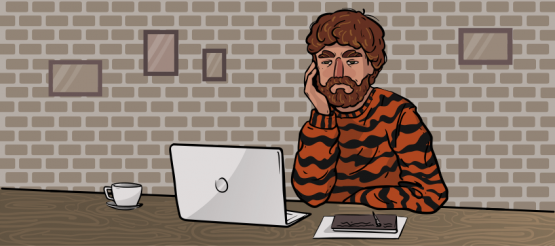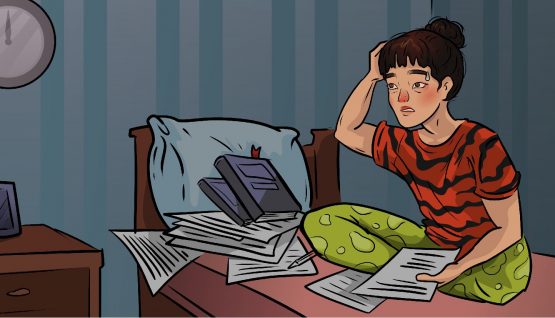How to Study for a Test the Night Before

You’ve procrastinated for who knows how long, and you’re arriving at the point where, if you don’t start studying now, you’ll go into the test with a head devoid of information. You probably know this already, but this happens to everyone. As long as you don’t make a habit out of it, you’re fine. You’ll have a chance to reflect on what you did and why it was bad later on, now let’s focus on getting you through the test with a passing grade.
Get Your Space Ready
If you can, go to a public space. Even though it’s been well-documented in the Internet that people can fall asleep pretty much anywhere, you should make sleeping an unappealing option by placing yourself as far away as possible from your bed. If you can’t go to a cafe or library, make sure you make yourself as uncomfortable as possible to stave off sleep. Don’t wear sweatpants, don’t sit in a chair you can lay in, and stay as far away from pillows as possible. Clean your desk and use it.
Get everything ready, including but not limited to: textbooks, notes, writing utensils, something to drink and something to snack on. Ideally, you’ll be sitting at this desk without getting up for awhile, so try and prepare everything beforehand.
50/10
You have to strike a balance between breaks and working, so set a timer for 50 minutes, and don’t lift your head from that textbook before it’s up. As soon as time’s up, get up and move! Go to the bathroom, make some tea or just walk around for a bit to give yourself some energy.
If you’re using a computer, don’t go on Facebook, Twitter or wherever else you prefer to waste time online. You’ll no doubt end up in a content vortex and won’t come out until an hour later. There’s no time to waste right now, so if you’re using anything with a screen to study, just leave it for the duration of the break.
Be Efficient
When you have limited time to study, you can’t afford to read all the chapters in-depth. If you encounter some information that you can’t parse on your first read through and it’s not absolutely vital, it might be best to just move on. A lot of this process is basically going to be throwing information into your head, and hoping it sticks.
Don’t use a highlighter. All the highly relevant information is probably going to be bolded or highlighted in another way in your textbook. Highlighting is for when you need to find stuff in a wall of text for later use, and with the time constraints that you’re under at most what you can hope is one thorough reading of the text. Yeah, it seems like some vague attempt at doing what students who don’t need to cram do, but highlighters are not magical.
After you finish each chapter, get a piece of paper and write down all the information that you think you will need when taking the test, in bullet point form, with headings and subheadings. This will do wonders for what information you retain, and you’ll quickly see what parts of the chapter you’ll need to revise to cover the gaps – if you have the time to do that, that is. Try these helpful memory improvement tecniques to memorize better!
Go to Bed
After you’ve done all your reading, drink a glass of water and head off for some sleep. You’ll need at least a power nap before the exam, since coming in with your brain fried from all the information you’ve been cramming into it won’t do any good.
After waking up and getting ready, read through your notes. If you read the textbook, the stuff you’ve written down should bring up related information. See? Results!
After it’s all over, take a look at how you got yourself in this situation. If you routinely have to cram for exams the night before, then it’s time to think about how you can reverse the habit. Resolve to always be on top of your reading and never turn in your homework late. Staying up all night to get a passing grade is a huge toll, and, in any case, barely passing every test you have shouldn’t be the way you spend your time in college.










